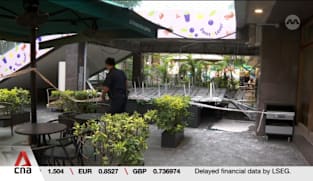Rahayu Mahzam on urgent need to get Singaporeans to eat less salt
Singapore will tackle excessive sodium consumption in a way that is suited to its context. In many European and Western countries, their main source of sodium is processed foods which households buy from shops or supermarkets. In Singapore, sodium comes mainly from added salt, sauces and seasonings. A key priority is therefore to work with the manufacturers of salt and sauces. The Health Promotion Board (HPB) offers grant support to salt and sauce suppliers to reformulate their products through the Healthier Ingredient Development Scheme. As a result, there are now more lower-sodium alternatives. To date, 15 major manufacturers and food operators are working to increase the variety and demand of lower-sodium ingredients. They represent over 30 per cent of the retail market for sauces and seasonings and 10 per cent of the F&B market share. Senior Parliamentary Secretary for Health Rahayu Mahzam gave this update in reply to an MP’s questions in Parliament on Monday (Nov 6). She said the other stakeholders to engage are food operators such as hawkers, restaurants, caterers and chefs. HPB hopes that they can also help to explain to consumers that salt is an acquired taste and over-consumption will affect their taste of the natural ingredients. HPB is planning a series of engagement sessions with them, as well as stepping up its public education campaign and food sampling efforts to spread the message that less salt often means more taste of the natural flavours of the spices and other ingredients typically used in local cuisine.
Singapore will tackle excessive sodium consumption in a way that is suited to its context. In many European and Western countries, their main source of sodium is processed foods which households buy from shops or supermarkets. In Singapore, sodium comes mainly from added salt, sauces and seasonings. A key priority is therefore to work with the manufacturers of salt and sauces. The Health Promotion Board (HPB) offers grant support to salt and sauce suppliers to reformulate their products through the Healthier Ingredient Development Scheme. As a result, there are now more lower-sodium alternatives. To date, 15 major manufacturers and food operators are working to increase the variety and demand of lower-sodium ingredients. They represent over 30 per cent of the retail market for sauces and seasonings and 10 per cent of the F&B market share. Senior Parliamentary Secretary for Health Rahayu Mahzam gave this update in reply to an MP’s questions in Parliament on Monday (Nov 6). She said the other stakeholders to engage are food operators such as hawkers, restaurants, caterers and chefs. HPB hopes that they can also help to explain to consumers that salt is an acquired taste and over-consumption will affect their taste of the natural ingredients. HPB is planning a series of engagement sessions with them, as well as stepping up its public education campaign and food sampling efforts to spread the message that less salt often means more taste of the natural flavours of the spices and other ingredients typically used in local cuisine.



















